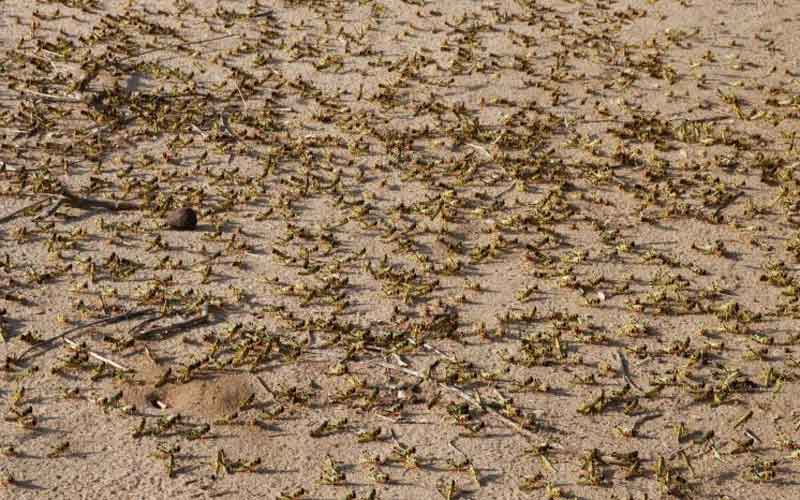×
The Standard e-Paper
Smart Minds Choose Us

A swarm of locust in Turkana, July 17, 2020. [Lucas Ngasike, Standard]
Agriculture Cabinet Secretary Peter Munya has warned of a second wave of desert locusts next month. In December 2019 and early 2020, Kenya experienced the worst locust invasion in 70 years as swarms invaded Mandera, Meru and Isiolo counties.